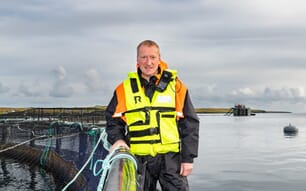House Bill 76 provides the financial infrastructure to develop a stable supply of seed for resident aquatic plants and shellfish at no additional cost to Alaskans. Today, Alaska shellfish farms do not have a regular, in-state source of seed for aquatic plants and other shellfish.
Meanwhile House Bill 128 allows qualified non-profits to pursue enhancement and/or restoration projects involving shellfish species, including red and blue king crab, sea cucumber, abalone, geoduck and razor clams. Both bills are sponsored by Representative Dan Ortiz (I-Ketchikan).
Alaska’s seafood industry is the single largest private employer in the state – commercial fisheries employ over 30,000 independent entrepreneurs and already have a monetary value of $6 billion. These bills would help increase and diversify Alaska’s fishery portfolio to help realize the $1 billion potential of commercial shellfish and marine plant production.
“I hope to support the continued growth of local industry, and help Alaska remain competitive with China, Russia, and Canada, all of whom have invested significant resources in mariculture infrastructure,” said Rep. Ortiz. “We can do this by ensuring Alaskan shellfish and marine plant farmers have access to capital to jump-start the year-round, in-state seed supply they need.”
“Alaskans have been harvesting shellfish for centuries, but the commercial potential of these fisheries far exceeds current levels,” Ortiz added. “While seeking to capitalize on the obvious opportunity presented by Alaska mariculture, it is crucial we realize these opportunities in a responsible manner that protects our existing world-class fisheries. With that in mind, HB 128 creates a framework for the Alaska Department of Fish and Game to permit and manage these projects and sets out stringent safety standards to ensure sustainability and health of existing natural stocks.”
Both bills have received broad support – from fishermen and women, constituents, community economic development organizations, and the Governor’s Mariculture Task Force.
House Bill 76 passed the Alaska House of Representatives on May 1st by a vote of 26-14. House Bill 125 passed the House by a vote of 37-2. Both will now be sent to the Alaska State Senate for consideration.


